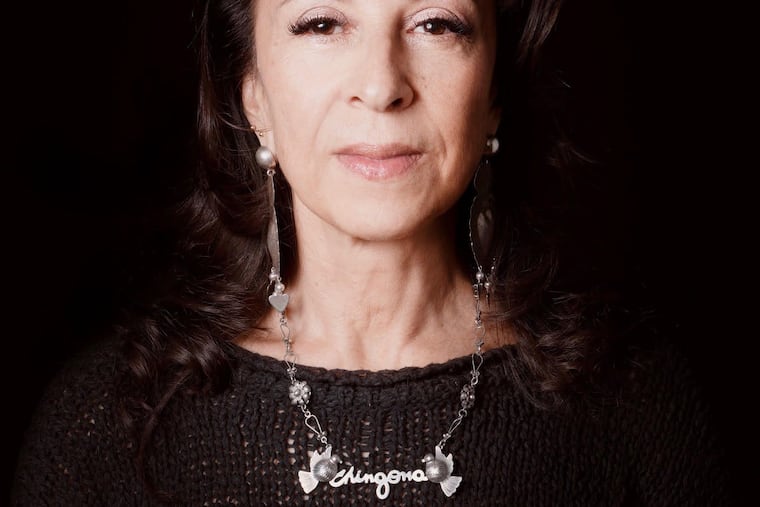The first Latina in many newsrooms writes about this country’s love — and hate — of immigrants | Helen Ubiñas
“Change starts with knowledge” she writes — and that reality must include that generations of past leaders were hostile to vulnerable populations long before Trump.

I can’t remember where I met Maria Hinojosa, a fellow Latina journalist.
Maybe at Boston University, when I was a transfer student fresh from community college. Or maybe a little later, at a conference for Black and Latino journalists when I was stressing my first reporting job.
Maybe I met her twice, I thought, as I read her new book, Once I Was You: A Memoir of Love and Hate in a Torn America.
What I do remember, even today, is how it felt seeing someone who looked and sounded like me doing what back then I could only dream I would do myself.
I was a first-generation college student. I was already older than my peers after taking what I call the scenic route through school, by way of every dead-end job you can think of. The idea of going to college was hammered into me by parents who didn’t graduate from high school but wanted better for their daughters, and it worked.
Except that beyond getting in, I had no clue what to do. Who did I even think I was, being in college, and — get this — thinking I could actually get a job where my voice mattered? I was still talking a mile a minute back then, less because I grew up in New York City and more, I later realized, because I feared that if I didn’t get everything I had to say out fast, people would stop listening.
So, to discover that Hinojosa, this rock star journalist who created one of the only nonprofit newsrooms run by a Latina in the U.S. — Futuro Media — also suffered from impostor syndrome wasn’t just a surprise, it’s a gift for those coming up behind her. A call to keep going, keep fighting and keep using our voices — especially now, and specifically for those deemed “others” — even if it often feels like no one is listening.
In story after revealing story, Hinojosa, an Emmy-award winning journalist, shares how her life as a woman of color was shaped, first as an immigrant traveling with her family from Mexico to Chicago, where a customs agent threatened to separate her from them after mistaking an allergic rash for German measles. (Sound familiar?)
And then as one of the few Latina journalists working in the nation’s major newsrooms — from CBS, CNN and NPR — who fought to tell stories that mattered to her, and her community, in spaces where decisions about whose voices are heard are still mostly made by white men.
“These are my truest inspirations, the ones who may be invisible to you, but who are in fact everywhere around us,” she writes after sharing the story of a mute and blind asylum-seeking boy who came to the United States from Guatemala with his mother to escape the local mafia that had killed his grandfather and threatened to kill him and others in his family.
In the midst of a long overdue national reckoning on race, justice and equality, on the streets and in newsrooms across the country, there is also an undeniable plea in her book for this country to do better, to be better.
“Change starts with knowledge,” she writes — and that reality must include that generations of past leaders were hostile to vulnerable populations long before Donald Trump.
Trump, as president, has simply abandoned any illusion about caring about unity and equality, and has revved up the engines of hate from his driver’s seat, slamming down on the accelerator every chance he gets.
“America has always put forward a loving veneer of loving immigrants and their role in this country, but in reality, the underside of immigration, the hidden hatred and internalized oppression and silence, has made our relationship with the notion of being a nation of immigrants much more embattled; a permanent secret war of words and hatred against itself.”
She rightly doesn’t spare her fellow journalists: we, the complicit.
“It took our country 50 years of visual reporting on TV to get to the point of a savvy media-heavy construction of immigrants as the most feared people in the country. And now it is on every one of us, every single day, to deconstruct this bullshit.”
Once I Was You is told with biting truth, from being raped as a young woman in Mexico to struggling in her career and her marriage to the love/hate relationship that many of us have with a country that is at a crossroads.
But it’s also told with tenderness aimed at her journalistic hermanas, her sisters in the fight using whatever platforms and privilege and pride they have to uplift the voices and stories that have long been overlooked and undervalued.
It’s still not easy, even with Hinojosa paving the way. It still comes at a steep cost.
To that end, she offers this piece of advice, from her husband, Gérman:
“Fear is in your mouth, you can taste it, but if you swallow it, it’s gone. There is no aftertaste. The fear is gone with a gulp and it lets you break with it, make it invisible.”
Eat your fear, hermanas, y adelante!